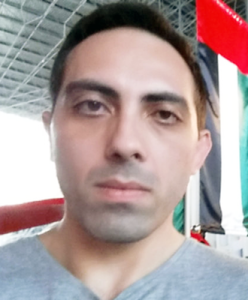CSR SPARC
2025 IEEE CSR Workshop on Security, Privacy and Resilience of Critical Assets in Critical Infrastructure (SPARC)
Chania, Crete, Greece (in-person event) • August 4–6, 2025
Asset discovery in IT and network systems is carried out with substantial tools to provide more accurate and specific information about digital assets. However, with the emergence of cyber-physical systems (CPSs), traditional techniques are not practically useful in providing answers to the key questions about the cyber and physical assets present in the systems. Examples of such systems are electric vehicles (EVs) infrastructure, autonomous vehicles (AVs)/connected AVs (CAVs), unmanned aerial vehicles (UAVs), smart grids, and smart manufacturing. Asset discovery in operational technology (OT) and understanding the criticality of its assets are not yet explored enough. These assets could be specific devices such as PLCs, HMI, RTUs, etc., or IoT and Industrial IoT devices, including sensors, actuators, and other related components. Security of such critical assets is crucial in strengthening the security of the CPSs. Similarly, such assets are having privacy concerns and issues considering big data collection and processing at different devices (edge/ cloud/fog). Most importantly, improving and ensuring the resilience of such assets by under-standing the impact of cyber-attacks on physical assets will greatly enhance the systems’ cyber resilience. The accelerating adoption of new technologies brings challenges primarily associated with the cyber security and safety of the applications, where confidentiality, integrity, and data availability are crucial. Further, AI techniques can be embraced to improve state-of-the-art understanding of asset criticality and safeguard solutions against cyber attempts on physical and digital assets of CPSs. This workshop aims to explore and develop new research ideas from the wider CPS context focusing on security, privacy and resilience of critical assets.
The CSR SPARC workshop will accept high-quality research papers presenting strong theoretical contributions, applied research and innovation results obtained from funded cyber-security and resilience projects, and industrial papers that promote contributions on technology development and contemporary implementations.
Topics of Interest
Prospective authors are encouraged to submit previously unpublished contributions from a broad range of topics, which include but are not limited to the following:
› Security, privacy and resilience analysis on IoT/IIoT/IoE assets
› Risk management and governance for critical asset applications
› Security, privacy and resilience of physical assets in cyber-physical systems
› AI-assisted critical infrastructure security for critical assets
› Detection, prevention, response, and recovery against potential threats to critical assets
› Automated threat modelling for critical assets
› Situational awareness and traceability for critical assets
› Applied crypto for securing critical assets
› Blockchain for trustworthy critical asset applications
› Privacy-preserving techniques for critical assets
› Cyber threat intelligence for critical assets
› Device specific asset criticality (e.g., RTUs, PLCs, etc.)
› Cyber-attacks’ impact on critical assets
Important Dates
Paper submission deadline: April 14 May 5, 2025 (extended, firm)
Authors’ notification: May 5 May 26, 2025
Camera-ready submission: May 26 June 16, 2025
Registration deadline (authors): May 26 June 16, 2025
Workshop dates: August 4–6, 2025
Submission Guidelines
Submitted manuscripts should not exceed 6 pages (plus 2 extra pages, being subject to overlength page charges) and should be of sufficient detail to be evaluated by expert reviewers in the field. The workshop’s proceedings will be published by IEEE and will be included in IEEE Xplore subject to meeting IEEE Xplore’s scope and quality requirements.
The guidelines for authors, manuscript preparation guidelines, and policies of the IEEE CSR conference are applicable to SPARC workshop. Please visit the authors’ instructions page for more details. When submitting your manuscript via the conference management system, please make sure that the workshop’s track 2T13 SPARC is selected in the Topic Areas drop down list.
Workshop Committees
Workshop Chairs
|
|
|
|
|
|
Contact Us
saxenan4@cardiff.ac.uk
gchatzivasilis@tuc.gr
c.hankin@imperial.ac.uk
Technical Program Committee
Sridhar Adepu, University of Bristol (UK)
Chuadhry Mujeeb Ahmed, Newcastle University (UK)
Ali Ismail Awad, UAE University (AE)
Z. Berkay Celik, Purdue University (US)
Prosanta Gope, University of Sheffield (UK)
Amir Javed, Cardiff University (UK)
Omprakash Kaiwartya, Nottingham Trent University (UK)
Charalambos Konstantinou, KAUST (SA)
Ajit Kumar, Soongsil University (KR)
Pardeep Kumar, University of Warwick (UK)
Subhash Lakshminarayana, University of Warwick (UK)
Daisuke Mashima, SUTD Singapore (SG)
Sangram Ray, NIT Sikkim (IN)
Vishal Sharma, Queen’s University Belfast (UK)
Anurag Srivastava, West Virginia University (US)
Mayank Swarnkar, IIT BHU (IN)
Nikhil Tripathi, IIIT Sri City (IN)
Sarad Venugopalan, University of Bristol (UK)
Rohit Verma, National College of Ireland (IE)
Publicity Chairs
Alexios Lekidis, University of Thessaly (GR)
Alexios Mylonas, University of Hertfordshire (UK)
Supported By
Program Information
Will be made available in the coming months.
See also the accepted papers of the conference.
Will be made available in the coming months.
See also the detailed program of the conference.



